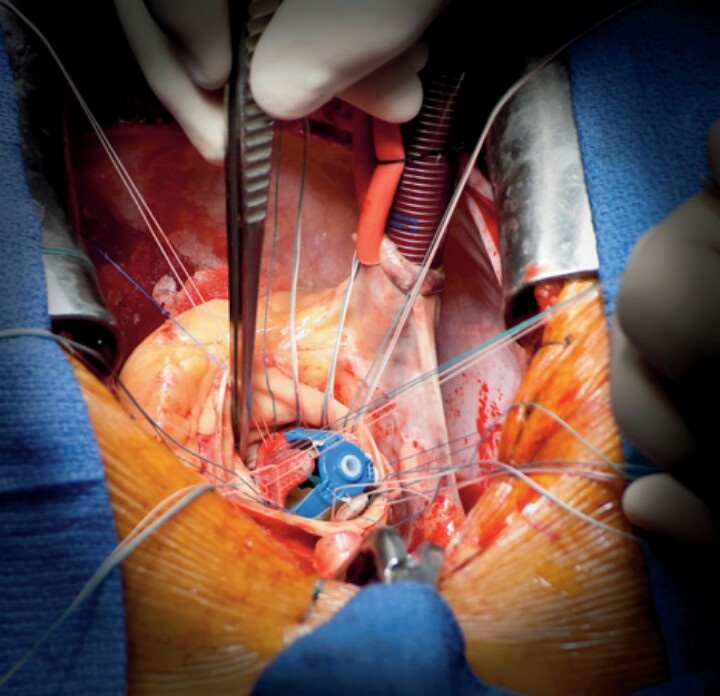Aortic Valve Replacement
Aortic valve replacement is a procedure in which a patient’s failing aortic valve is replaced with an alternate healthy valve. The aortic valve can be affected by a range of diseases; the valve can either become leaky (aortic insufficiency / regurgitation) or partially blocked (aortic stenosis). Current aortic valve replacement approaches include open heart surgery, minimally invasive cardiac surgery (MICS) and minimally invasive, catheter-based (percutaneous) aortic valve replacement.
During this surgery, the damaged valve is removed and replaced with an artificial valve. The valve replacement is typically an open-heart surgery.
A minimally invasive surgery or a catheter procedure to replace the aortic valve may be an option for some people.

How is the surgery done?
During open-heart valve surgery, the doctor makes a large incision in the chest. Blood is circulated outside of the body through a machine to add oxygen to it (cardiopulmonary bypass or heart-lung machine). The heart may be cooled to slow or stop the heartbeat so that the heart is protected from damage while surgery is done to replace the valve with an artificial valve.
What To Expect After Surgery
You will recover in the hospital until you are healthy enough to go home. Depending on your overall health, you will likely go home a few days after surgery.
Surgery will likely involve a long recovery over several weeks. You will probably need to take 4 to 12 weeks off from work. It depends on the type of work you do and how you feel. In some cases, full recovery may take several months.
Why It Is Done
Aortic valve regurgitation
If your chronic regurgitation is getting worse and you have symptoms, you will likely have surgery. You might have surgery before you get symptoms, especially if your regurgitation is getting worse. If you have acute regurgitation, surgery will likely be done right away.
Aortic valve stenosis
Valve replacement is recommended based on many things including how severe the stenosis is, whether you have symptoms, and how well your heart is pumping blood. It is typically recommended when a person has severe stenosis.
To Get An Appointment Today (+91) 9607799333
